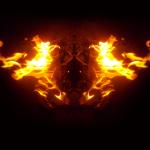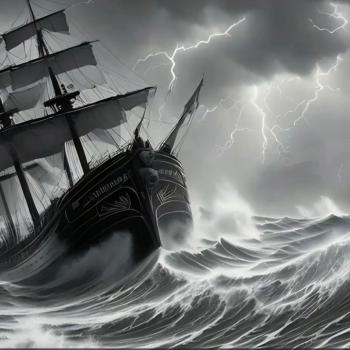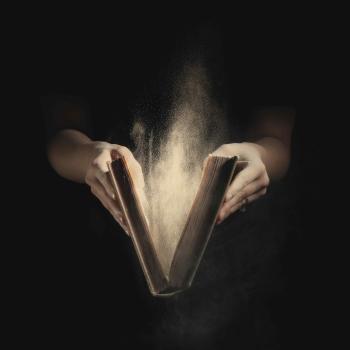
He’s there sometimes y’know. Whether you’re in a neighborhood library, in a bookstore or even online at your favorite eBook vendor. Apart from the Bible, the Quran and really any of the sacred texts, there are some amazing classic poems & novels that contain God-inspired themes. While this is no secret, we’re not always told about this when we are assigned to read some of these works by our schools. If you endeavor to read these on your own, you may also not pick up on the embedded religious themes contained within some of these books without some sort of guidance or prior exposure to religious comparative literature.
However, regardless of your exposure to such literary theory or analysis, in many of our “storied” books where the tools of allegory and metaphor reference religious themes, it is often quite interesting to see how the authors often use the tools of esotericism to convey these God-inspired messages or else they stage a retelling of the Word or other sacred texts in order to convey their religious views.
Although I have many more, I selected just my top 5 Christian-themed novels and poems listed below and I will be posting them over the next few days in sequence. These are not overtly religious (such as for example, Dante’s “Inferno” ) but their authors used some of the most ingenious tools of esoteric writing to speak the “Truth” within the story.
- Moby Dick: Herman Melville
- The Alchemist: Paul Coelho
- The Life of Pi: Yann Martel
- The Brothers Karamazov: Fydor Dostoyevsky
- The Rime of the Ancient Mariner: Samuel Taylor Coleridge
Herman Melville’s “Moby Dick”
Without a doubt, “Moby Dick” remains my favorite novel for a number of reasons. Melville’s masterpiece about a man’s obsession with a beast of the sea and his inevitable resultant downfall scores high marks on both the form and the content.
Written in 1856, this most famous book of man’s arrogant, vain quest to challenge and destroy a monstrous whale and thus become all the greater, is an embedded retelling of the Biblical Leviathan however, this allegory itself is mysterious.
Moby Dick has been analyzed numerous times since its original writing and it likely holds its own with being one of the most over-analyzed novels of all time. The book has biblical metaphors and references throughout its content.
Among such biblically inspired thematic content is Melville’s treatment of the whale as either an evil serpent or as a metaphor for God. This controversy about the whale as the biblical “Leviathan” remains the subject for debate even today but that is due to an anomaly on this topic within the Bible itself.
Per the Bible Gateway, we know that the word “Leviathan” appears six times in the Old Testament. The first occurrence of the Leviathan is found within the Psalms as shown below. In this context, the Leviathan is represented as a monstrous beast created by and thus, controlled by God.
- Psalm 74:14
It was you who crushed the heads of Leviathan and gave it as food to the creatures of the desert.
Psalm 104:26
There the ships go to and fro, and Leviathan, which you formed to frolic there.
However, we can also see the Leviathan rear its head in the Book of Job per the verses below. This treatment of the Leviathan indicates that the great beast is really just a metaphor for God and all His power.
- Job 3:8
May those who curse days curse that day, those who are ready to rouse Leviathan.
Job 41:1
“Can you pull in Leviathan with a fishhook or tie down its tongue with a rope?
Job 41:12
“I will not fail to speak of Leviathan’s limbs, its strength and its graceful form.
Then, there is also the popular debate about chapter 42 entitled “The Whiteness of the Whale”. Essentially, this chapter solidifies Melville’s intent to adopt Job’s verse depiction of Leviathan within “Moby Dick”. By writing so much detail about the “whiteness” as encompassing all the beauty as well as nothing within color and nature, Melville was essentially referencing “white noise”. Within both the science of acoustics and music theory, when all sounds whether pleasant sounding or harsh/dissonant occur at once, it is referred to as “white noise”. Hence, in describing the all encompassing “whiteness of the whale”, Melville painted a literary picture of God within the shape of a huge, white whale.
So when we read Melville’s “greatest whale story ever told” and take into account its beginning, middle and end, apart from the heavily detailed and beautifully worded fiction, the tale becomes functionally a deeply Christian-based tale of an obsessed, arrogant, angry man (Ahab) who chooses to challenge God (the whale in this case) in a vain attempt at conquering God as well as himself. This analysis puts Melville’s “whale thinking” in line with Job’s version of the Leviathan or beast of the sea solely as a metaphor for God.
Although written over 150 years ago, “Moby Dick” remains ever relevant even today. All Christians as well as others have suffered some sort of setback or hardship throughout the course of life. It is not unusual to feel anger and to display such anger at times. However, for those who believe in a God greater than themselves, we know that man is not designed to be on par with God. Thus, whether trying to arrogantly build a Tower of Babel or to challenge him (as the Whale in this case) to a fight to the death, such actions will inevitably fail and, at least in the case of Ahab and his crew, such actions were fatal.









